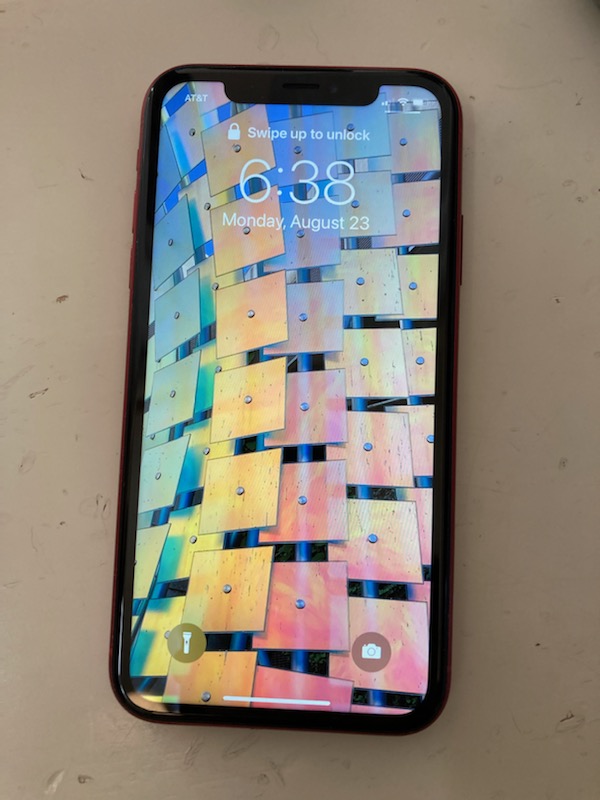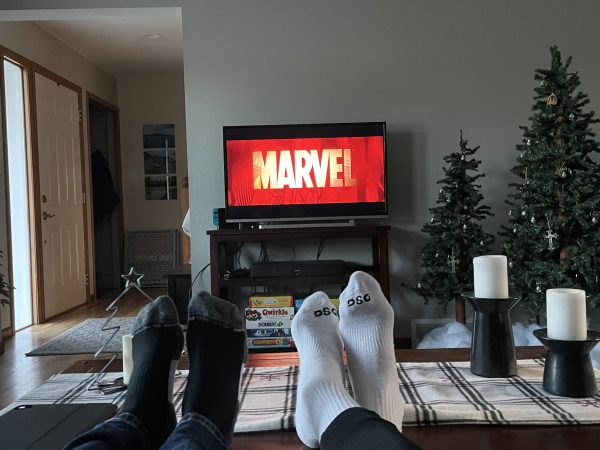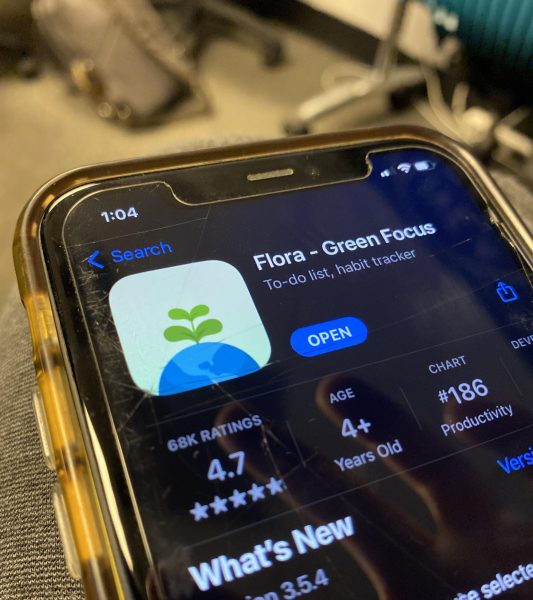Phones Are Cool. They Also Suck.
You likely already know what this is about. It’s another article telling you that you are a lazy teenager who is rotting their brain by sitting on your phone. That assumption isn’t completely wrong, but it is definitely not completely right. This world would be, comparatively, morally, ethically and economically primitive without mobile devices like phones. They are essential components of modern life. However, they may be a little bit too essential to some.
Your phone does not need to be checked every ten minutes. It does not have to be with you at all times. It does not need to be your only source of entertainment and time consumption. Why? You know why. We all know about the consequences of constant smartphone usage, but maybe the pros of extensive phone time outweigh the cons? I don’t think so. How about we list a few disadvantages.
The stress and distractions cause you to miss out on valuable time with your friends.
How about another hypothetical? You have been keeping a journal in the notes app. That journal contains rants and secrets that you need to get out of your brain. One day, you get hacked and everything on your phone including your bank account number, social security number, and your journal of secrets, gets stolen. You have lost everything, and, to make things worse, one of the secrets on your phone was of national importance. Just when you are about to call someone to help you fix it, your phone dies and you can’t do anything. Now the hacker has money, a new identity, and the ability to take over the world!
Ok. I will acknowledge that that was a stretch but again, not the point. Privacy is immensely important to a lot of people and our phones give strangers a window into our lives. It doesn’t help that we trust our phones with our lives. Literally. We rely on them so much that a lot of us would struggle to get through the day without the information and tools on our phones. If you lose your phone, you lose your life. We’re so obsessed that there’s now a word to describe a fear of being without your phone: ”Nomophobia”
What happens when your phone runs out of battery and you don’t have a charger? You ask around first and then, if no one has one, you panic. You could get your life stolen or give yourself a panic attack because you can’t find a way to disconnect your life from your phone. Want another hypothetical? No? Okay, yeah, I understand. It’s safe to say, we’re addicted.
We all know that phones are distracting so your work never gets finished, and can cause accidents. I know an alarming number of people who have run into poles or walls because they were paying attention to their phones. And, of course, there is texting and driving which, according to edgarsnyder.com, causes one out of every car accidents.
They can also affect our emotional well being, especially when considering social media. Social media acts as a conflict outlet, that is, that is where people go to start and get involved in fights. Virtual disputes lead to decreased empathy and stereotypes on every side of every argument.
Social media influence also spreads to our decision making. We, as people love to watch people do stupid, risky things and our phones have a limitless amount of stupid content. When we see other people doing stuff, we want to do it too. Journalist Sun Sun Lim says that this may have led to an increase in youth crime.
What makes the whole idea of increased youth crime worse is that mobile phones are likely impacting short-term memory and problem-solving. Because our brains are still developing, these impacts last longer than they would on an adult. According to a journalist, Yenny Rojas, once a child nears twelve, they reach an important period for cognitive development, marking a transition in ways of thinking and reasoning about problems and ideas. However, children under 11 have not yet learned how to comprehend complex concepts, so the influence on short-term memory and problem-solving issues would go on to shape them as people and influence how they see the world.
Young children have a huge disadvantage when it comes to avoiding the negative effects of the internet and phones. Surveys have shown that the average age kids get cell phones is 7-years old. According to The French Health Ministry, owning a mobile phone at such a young age is known to result in more negativity, distress, and less emotional recovery. Hence the lack of trauma coping that seems to run rampant through our generation.
To recap, phones are partially responsible for an increase in youth crime, decreasing empathy, forming stereotypes, devolving short term memory and problem-solving abilities, and less emotional recovery, especially in regards to trauma. With this information, it is safe to conclude that phones may be seriously harming our mental health.
In addition to mental health, phones can affect our physical health as well. Most of the time, when people hear about health associated with screen time, they think of that famous rumor about cancer. That is mostly a false rumor. Cell phones emit radio waves that are “non-ionizing.” Because they are non-ionizing the only thing they can do to your body is cause it to heat up. There is no proof or any evidence that phone generated radio waves can cause tumors to form.
In 2018 scientists at the American College of Cardiology have found that people who use their phones for at least five hours a day have a 43% higher risk of becoming obese. Sciencedaily says that using your phone so often means you are more likely to consume unhealthy foods and drinks like fast food, sweets, and snack because we tend to crave snacks when we have decreased physical activity due to the limited movement involved with phone time.
We might as well be sleeping based on the amount of time we spend not moving while being on our phones. Unfortunately, just as we choose to look at our screen instead of doing something useful, we choose to look at our screen when we should be sleeping. Our sleep is an overlooked aspect of our health. When you wake up will affect your entire day, but most of us don’t seem to care. We lie on our beds, on our phone for hours and then, when we can’t keep our eyes open anymore, we pass out. It has become a normal occurrence, and it is terrible for health and well being.
It is common knowledge that everyone must get enough sleep to wake up healthy and well-rested. However, occasionally, we will wake up after sleeping for 14 hours and still feel like crap. This is due to the fact that you woke up during the wrong part of your sleep cycle.
According to sleepcycle.com, sleep cycles are part of our internal biological “clocks,” the regularly occurring patterns of brain waves that occur while we sleep. Sleep cycles typically last around ninety minutes to two hours, during which time the brain cycles from slow-wave sleep to REM sleep in which we experience dreams.
If we wake up during REM sleep, which is considered to be the deepest sleep cycle, we are groggy and slow. Our phone use during the night time messes with our brain’s schedule and knocks our sleep cycle off-kilter.
So, are you ready to cut down on your screen staring, or do you think that I’m blowing this out of proportion? Studies in 2019 revealed that 2.71 billion people in the world owned a smartphone and that most people spent around three hours and 15 minutes on their phones each day. Similar studies held only a year later showed that the number of phone owners increased by 9.3% with 3.5 billion people nationwide, and the average time spent on your phone had increased to 5.4 hours.
Now that you are feeling thoroughly guilty, how about we figure out how to cut down on your phone use? Joshua Becker, an author and the owner of becomingminimalist.com, tells readers about his strategies to “break your cell phone addiction.” Some of them would be hard for students, especially gen z and millennials, to enforce solely due to the fact that we now rely on our phones for crucial communication, and information. However, a few of Becker’s suggestions have potential.
First, Becker suggests that you change your phone settings. Specifically, that you set a longer passcode, use airplane mode, turn on do not disturb, turn off notifications. The last one may be hard since we need to receive texts sometimes, but it does prevent us from checking our phone for things to do because your phone won’t notify you of any entertainment opportunities.
Second, there are supposedly plenty of apps to help. That fact seems a little odd because they require you to be on your phone to help get off your phone, but I can vouch for a few of them. I have tried using apps to improve my habits. Drinking more water for example. These apps, however, I have found to be effective.
Forest, a gamified focus based app that plant trees. Moment, which “helps you use your phone in a healthy way,” and Flipd turns distracting apps. My favorite is Space. It helps track your phone habits and helps you manage them.
The most important suggestion is that you don’t charge your phone near your bed. You won’t be tempted to grab it and stay up all night. Sleep is important, people!
Apartmenttherapy.com suggests one final interesting tip: Turn your phone to black and white. The theory behind this recommendation is that, without the bright colours that cover our home screen, our brains become disinterested. The website explains that to change your settings you simply do the following:
Open Settings.
Open General.
Choose Accessibility.
Choose Display Accommodations.
Select Color Filters.
Toggle Color Filters On.
Select Grayscale.
I found it frustrating to go back into settings to turn it off, but the website explains how to toggle the settings. Now I just triple-click my home button and the color comes back.
So, I did your research for you. Now you can go out into the world and use your newfound information to change those nasty habits. Remember, phones are wonderful inventions that play a crucial role in our society. Just make sure to manage your usage. Get off your phone and look around, Rocky!
Your donation will support the student journalists of Rocky Mountain High School - CO. Your contribution will allow us to purchase equipment and cover our annual website hosting costs.

Lilah is a Senior here at Rocky with her twin brother. Her little brother is starting middle school at Webber this year. She has two cats and a dog named...






